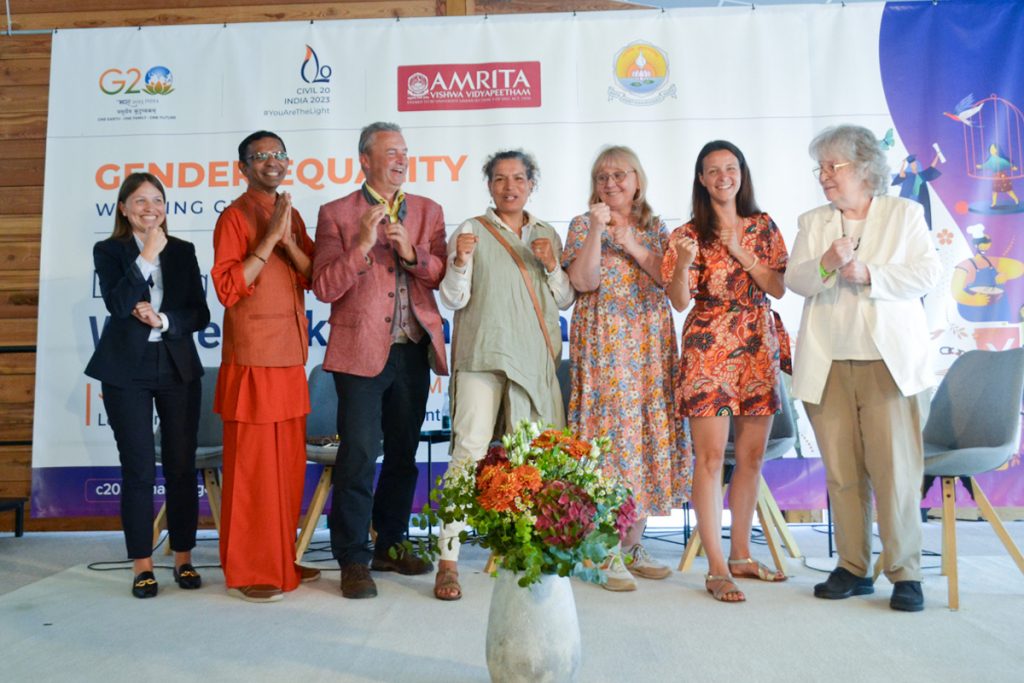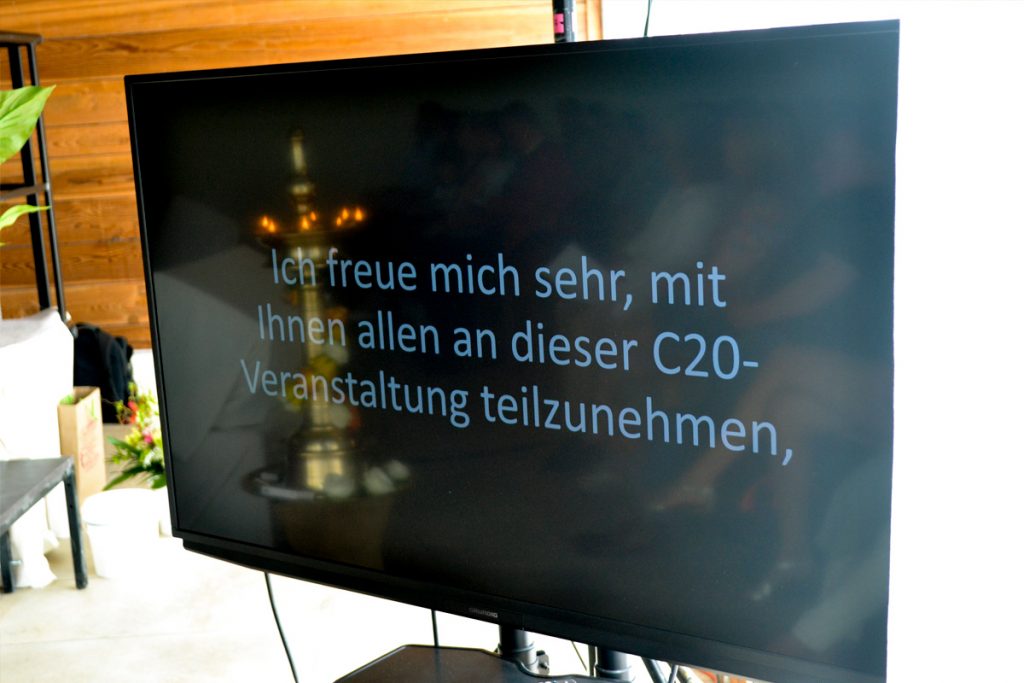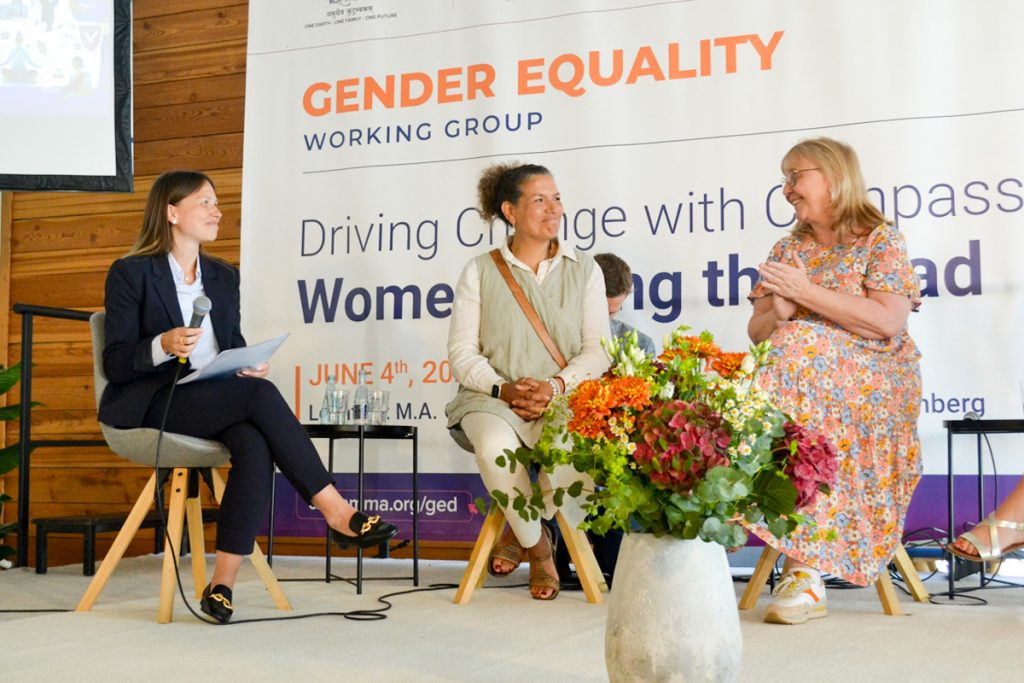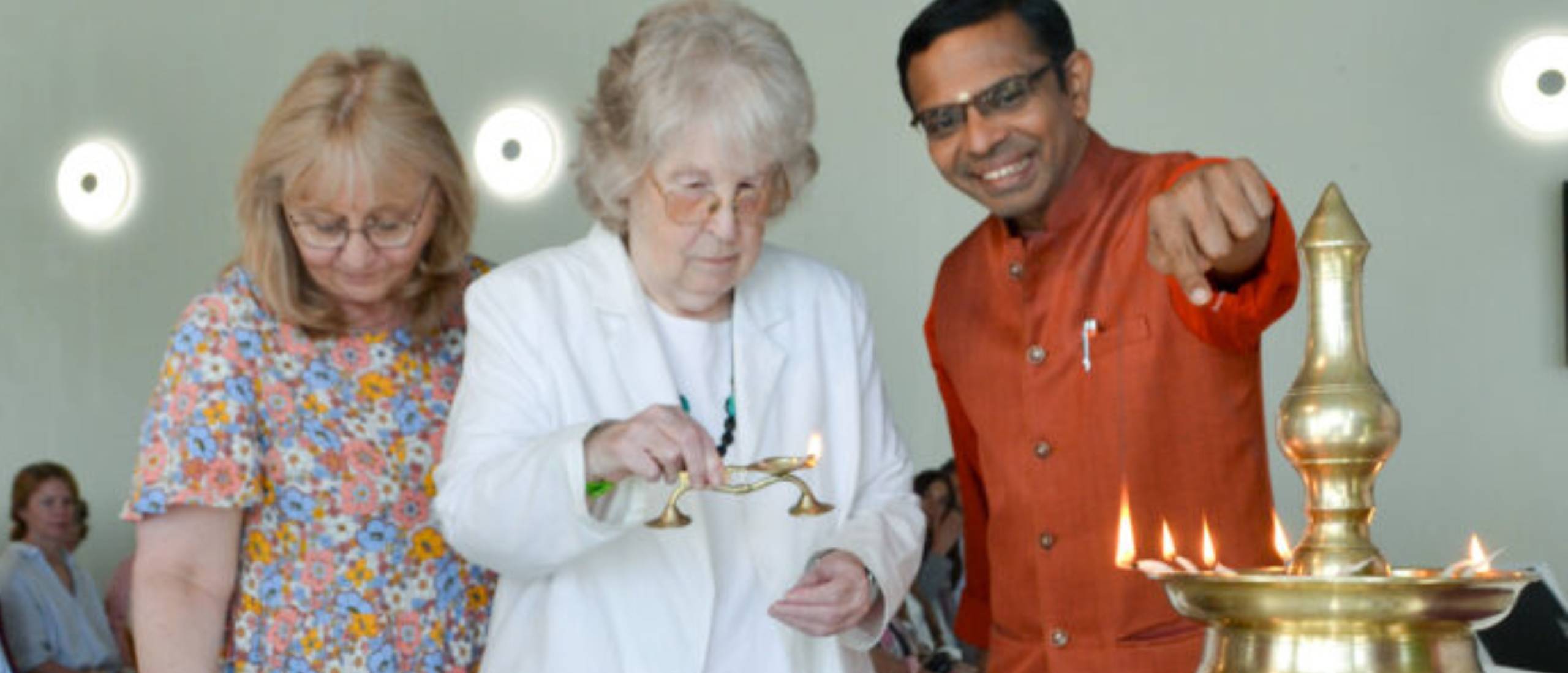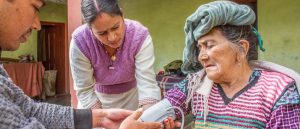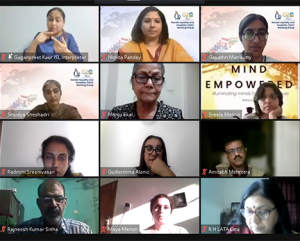Change can take place in society either through force or through compassion. While force may yield some immediate results, it often leads to perpetuation of violence. Compassion leads to a sustainable change and harmonious society with understanding, empathy, and cooperation.
Under the motto ‘Driving change with compassion – Women taking the lead’, a Civil 20 (C20) panel discussion with distinguished guests took place at the MA Center Hof Herrenberg in Brombachtal, Germany. The event was part of the C20 working group for Gender Equality and was attended by 170 people, including participants from India, Spain, France, the Netherlands, USA, Greece, Austria, Luxemburg, Switzerland, Poland, and Germany.
The Mayor of Brombachtal, Andreas Koch, welcomed the international audience and praised Amma as C20 Chair for her tireless commitment to equality and the empowerment of women. He expressed that she advocates for a society where women are respected, their voices are heard, and they have equal opportunities to flourish and contribute to society. He also highlighted that this event is a great effort to make as many voices as possible heard from civil society around the world through an inclusive approach.
Said the mayor: “Such an event is a great opportunity to learn from others and to see that our society is connected as one global family. As the motto of this year’s G20 Summit says, ‘One Earth. One Family. One Future.’”
The Coordinator of the C20 Working Group on Gender Equality, Prof Bhavani Rao with Amrita Vishwa Vidyapeetham, addressed the gathering virtually. She presented the work done so far on the topic with her speech, emphasising the importance of a comprehensive approach to women’s empowerment, in which compassion plays a major role.
Swami Shubamritananda Puri, the C20 Coordinator in Europe, introduced the topic from Amma’s perspective as Chair of C20. He said: “Change can take place in society either through force or through compassion. While force may yield some immediate results, it often leads to resentment, suppression, and perpetuation of violence. While compassion leads to a sustainable change as it fosters understanding, empathy, cooperation and thus helps in developing a more inclusive and harmonious society.
“If an egg is broken by outside force, life ends. If it hatches from within, a life begins. Driving the change through compassion is like hatching from within. Women have been instrumental in driving social change through their compassion. By challenging societal norms, advocating for human rights, fostering empathy and understanding, and nurturing future generations, women have reshaped communities and societies worldwide.“
Introduced by the moderator, Alena Steffen, the panelists started their discussion about women as change leaders:
Corinna Witzel is a board member of UN Women Germany and has been campaigning for more equality for over 20 years. She knows how important perseverance and patience are in this field. As a practical example, she mentioned that many years ago, with the worldwide campaign “Colour the world orange”, an action against domestic violence, public buildings in German cities were also lit up in orange to draw attention to this deplorable state of affairs. She also highlighted that having children should not be of financial and social disadvantage for women.
Lucia Rijker is a world champion kickboxer and Hollywood actress from the Netherlands. After her career in sports, she has been involved in projects that empower young people. She emphasised that in this discussion it is important to remember that we all have our personal contribution to make by looking inwards and “cleaning up” our own beliefs that create inequality and injustice.
Rekha Krings, a young wife and mother of two daughters, is executive director of the Interessengemeinschaft Odenwaldkreis (IGO), parliamentary group leader of the SPD in the Odenwald District, and member of the District Council. In her opinion, gender equality only succeeds when all genders meet each other with respect and eye level and work together as a team on the challenges of a system change.
Dr Rosemary Cadigan has been involved with the non-profit organisation “Tafel” for over 20 years. The Tafel gives food donations to people in need in Germany. During her time as a teacher, she experienced that not all children in Germany receive equal support in learning the German language, and children of immigrants are especially disadvantaged as a result. Here she would like to see more compassion for the children and a structural change so that all children have the same chances to shine their light one day and to be able to fully develop their abilities.
